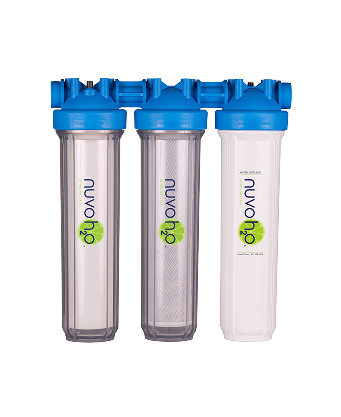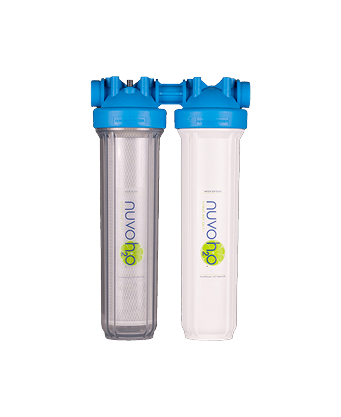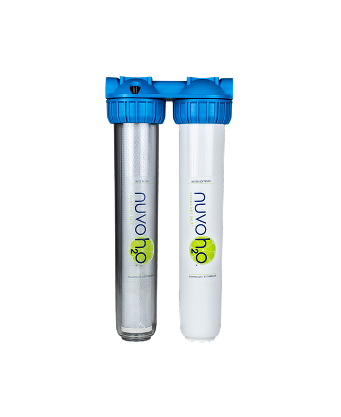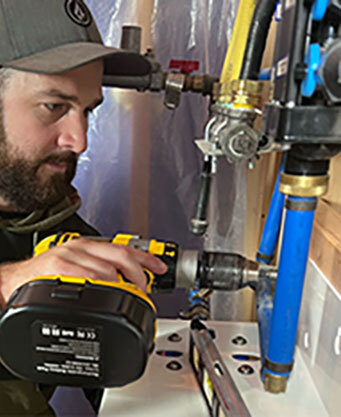
Why Don't You Love Your Water?
Posted by Tait Washburn on 11th Feb 2022
One of the easiest ways we can stay healthy and happy is to drink enough water. Staying hydrated has a whole host of health benefits, from preventing joint pain to improving your skin, keeping your digestive system running, and even protecting your brain. And yet, statistically over half of us are not drinking enough of it!
You might think it’s easy to drink enough water, especially at home when you can just fill up a glass in the sink, but over 60 million of us don’t like or trust our tap water. Whether it’s an odd taste, a bad smell, a strange color, or other water issues, there are a lot of reasons you might distrust water from your sink. If you’re one of the millions who don’t love their tap water, we’ve collected a handy guide of potential issues you could ask your plumber about, and some good ways you can fix your plumbing and love your home’s water.
Why Does My Water Smell Weird?

Nothing will put you off of your tap water more than a bad smell. If you’ve ever gotten a glass and decided to fill it with soda rather than water from a smelly sink, no one would blame you! Some common water complaints are that it smells musty, earthy, or like bleach or sulfur. But when looking to fix those smells it’s important to make sure you know where that smell is coming from.
The first step you should take is to fill a glass of water from your kitchen sink, move to another room, and then give it a smell test. If the glass of water no longer smells, it’s likely a problem with your sink, not your water. You should also give each sink and shower a separate smell test, run any fixture with an offensive odor for a few minutes to see if it stops smelling, and you should test your hot water and cold water separately. All of these steps can help you when you talk to a plumber to identify if it is a problem with your sink drain, water heater, deeper in your home’s plumbing, or a problem with your water source directly.
Any problems with your plumbing or appliances can usually be solved easily with the help of a plumber or other water expert, but if all your water smells all the time at all temperatures and fixtures, you likely have a problem with where you get your water. In these cases, it’s highly recommended you get your water tested through a certified lab and talk to your water provider if you are on a municipal water supply or a professional well driller or pump installer if you have well water. To find certified labs, contact your local health agency for a referral.
The most common smell issue is with a rotten egg smell or a sewage-like odor, and is likely due to bacteria growing in your sink drain or other places in your plumbing. If your water only smells when it’s hot, it’s very likely a problem with your water heater, such as bacteria growth due to under-use or a failed magnesium heating rod. Other smells, such as a solvent or fuel-like odor could be a warning sign for greater issues from your water source, while other issues like a bleach or chemical-like smell may be a natural consequence of how your water is treated. And regardless of the smell issues you have, you should definitely taste test your water a little too.
Why Does My Water Taste Weird?
While your water’s smell may be caused by issues outside of the water itself, a solid taste test tells you much more about your water than just the smell. Tasting the water away from any strong odors from other sources is key to making sure you’re not tricking yourself into tasting what isn’t there, and a small sip and spit can be enough to get a good sense of it’s taste.
Many of the most common taste issues are connected to water smells, especially those coming from your water source. Like the smell in the previous section, a chlorine, bleach, or other disinfectant taste is likely due to the way your water is disinfected, especially if you are on municipal water. While this is usually safe, it can make your water difficult to drink and affect your cooking, skin, and clothes in extreme cases.
More rarely, water that tastes like dirt, gasoline, or turpentine is more likely due to a breached pipe outside your home, groundwater runoff entering your well if you have one, or other outside contamination like a leaking underground storage tank, and you should definitely contact your municipal water provider or a well specialist to find and remove the source. Finally, metallic tasting water is usually caused by your own plumbing or from the pipes outside your home, and should be tested immediately. While it’s likely due to copper pipes interacting with water disinfectants and mostly harmless, it could be from other metals that are much more dangerous, like lead or heavy metals. With any of these tastes, reach out to your local health agency and find a lab to get your water tested.
What do I do?
When we experience water issues, including smell, taste, or discoloration, there are some very easy steps you should always take. Like we’ve said above, a water test is always a good idea! For potentially serious issues, you should talk to a certified water lab through your local health agency as we’ve discussed, but if your water just seems a little off or if you’re considering adding or taking away some part of your home water system such as a filter or softener, you can find home water testing kits online or at many hardware stores. Additionally, if your home is on a municipal water supply, you should receive an annual water quality report from your utility provider in July which may be available online. Any of these testing methods will be invaluable when talking to water professionals about your options.
Another good step would be to contact water professionals! Unless you are one, it’s always better to ask a local professional who will be more informed on current water trends and issues in your community, and they are usually happy to help you make the best decision for your water. You can also go to trusted sources such as the EPA’s website for up to date information on water contaminants and what they mean for your health.









